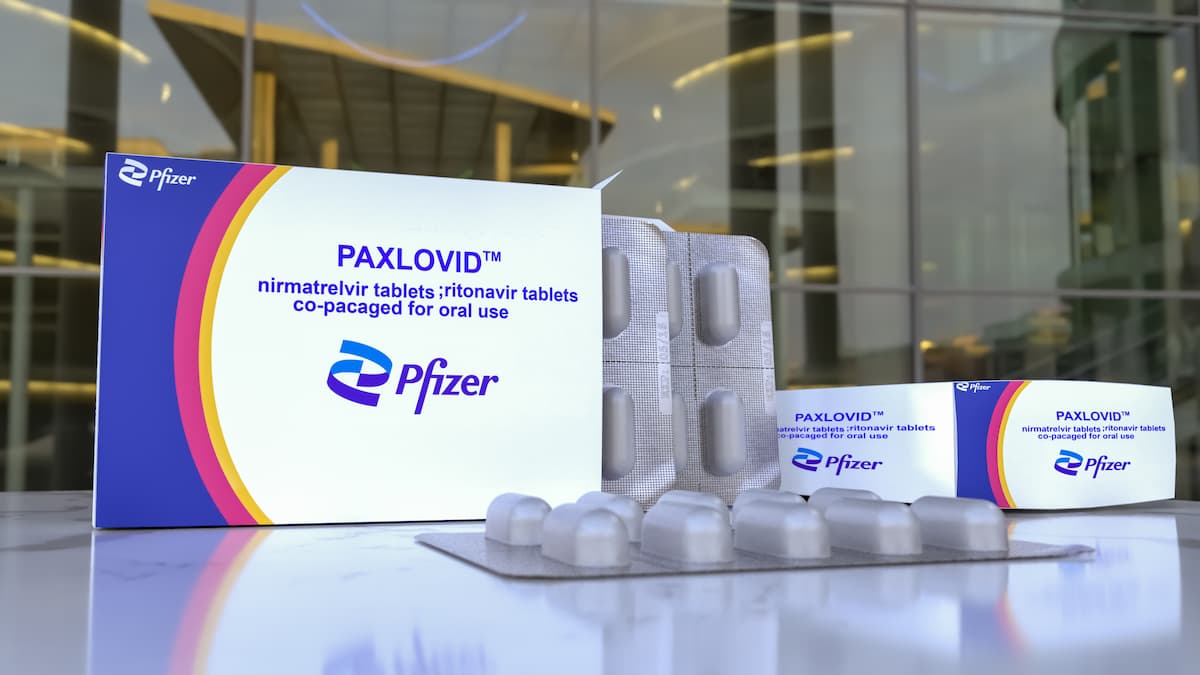- Clinical Technology
- Adult Immunization
- Hepatology
- Pediatric Immunization
- Screening
- Psychiatry
- Allergy
- Women's Health
- Cardiology
- Pediatrics
- Dermatology
- Endocrinology
- Pain Management
- Gastroenterology
- Infectious Disease
- Obesity Medicine
- Rheumatology
- Nephrology
- Neurology
- Pulmonology
FDA Committee Supports Approval of Paxlovid for Treatment of COVID-19 in High-risk Adults
The FDA's Antimicrobial Drugs Advisory Committee voted 16-1 to support the approval of Paxlovid for the treatment of of mild-to-moderate COVID-19 in adults at high risk for severe disease.

The US Food and Drug Administration’s (FDA) Antimicrobial Drugs Advisory Committee (AMDAC) voted on March 16 to support the approval of nirmatrelvir and ritonavir tablets (Paxlovid™, Pfizer) for the treatment of mild-to-moderate COVID-19 in adults at high risk for severe disease, hospitalization, or death, according to an FDA broadcast of the meeting.
The committee voted 16-1 that the benefits of Paxlovid™ outweigh the risks in this population. The FDA will take the vote into consideration while making its final decision on approval, which is expected in May.
In December 2021, Paxlovid was granted an emergency use authorization (EUA) by the FDA for people aged 12 years or older who test positive for SARS-CoV-2 and are at risk for severe disease. In July 2022, the FDA expanded the EUA to allow pharmacists to prescribe the drug to qualifying people immediately after testing positive for the virus.
During the March 16, 2023, meeting, the FDA said it is looking at widening the number of people eligible for a prescription, and recommending those prescriptions be made earlier after infection.
The AMDAC based its vote on safety and efficacy data from the EPIC (Evaluation of Protease Inhibition for COVID-19) clinical development program, which included results from the phase 2/3 EPIC-HR (Evaluation of Protease Inhibition for COVID-19 in High-risk Patients) study. The EPIC-HR study enrolled unvaccinated, nonhospitalized adults aged ≥18 years with confirmed COVID-19 and at increased risk of progressing to severe disease. Results showed an 86% decrease in risk of COVID-19-related hospitalization or death from any cause through day 28 in patients who received Paxlovid within 5 days of symptom onset, compared to placebo, according to a Pfizer press release.
Additionally, the vote was supported by findings from a secondary endpoint of the phase 2/3 EPIC-SR (Evaluation of Protease Inhibition for COVID-19 in Standard-risk Patients) study. Results showed the effectiveness of Paxlovid in a subgroup of nonhospitalized adults aged ≥18 years with confirmed COVID-19 who had at least 1 risk factor for progression to severe disease and who were fully vaccinated.
“In addition, real-world evidence presented to the AMDAC showed that PAXLOVID’s clinical profile in the post-authorization setting is consistent with the safety and efficacy conclusions from the EPIC clinical program, including observations made when the Omicron variant and its lineages were the predominant forms of SARS-CoV-2 in circulation,” continued Pfizer in the press release. “This real-world evidence also shows the effectiveness of PAXLOVID among vaccinated patients and patients who developed natural immunity.”
The AMDAC did not consider the risk-benefit of Paxlovid for children aged ≥12 years in the March 16 meeting. The FDA said the EUA for this age group will remain in place, although some members of the committee expressed support for an approval for that age group as well.
